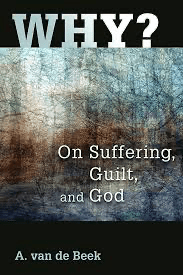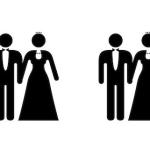“Why?” Chapters 17 and 18: “Which Model Do We Choose?” And “God Is Changeable?”
Does God change? If so, how and in what ways? In these two chapters our author (of “Why? Suffering, Guilt and God”), Abram van de Beek, is wrestling again with the problem of God’s omnipotence and goodness. How to reconcile them in light of the horrors of human history?
In Chapter 17 “Which Model Do We Choose?” He lays the groundwork for what is yet to come. He has been discussing “models” of God. So far he seems to find all traditional ones flawed. Here he claims that “Theology…attempts critically to review the assertions Christians make.” (253) I completely agree, even though that task of theology is becoming more and more controversial all the time. Even many American Christians don’t want theologians to do that—unless they are critically reviewing assertions made by people with whom they strongly disagree. Even then, however, many Christians don’t want “negativity” from Christian theologians.
”No single model can contain the fullness of God.” (255) Right again. However, some models are better than others. “Not every assertion is valid.” (256) Right again. VdB rejects several common attempts to deal with conflicting models of God within the churches and among Christians. Now he shows us his own approach: “God is the concrete God of history—hence God is Jesus Christ.” (258). Right again. But the vdB makes some “marginal comments”—qualifications. I won’t repeat those here. But vdB ends this programmatic chapter by making a rather startlingly claim that he hinted at earlier in the book. Various valid models of God in revelation (salvation history as recorded in the Bible) cannot be treated well except in chronological fashion. (260) I take it he means God has a history, at least from our point of view, that cannot be collapsed into a one-fits-all model true in the same way for all times.
Is this grabbing your attention? It grabbed mine! I have underlined most of page 261 with arrows pointing from the edge of the page toward certain highly controversial claims such as “[God’s] relationship to the world cannot be stated in just one way….” (261)
Now I move on, hopefully with you, to Chapter 18: “God Is Changeable.” First let me say, autobiographically, that I have always thought the God of the Bible is changeable but NOT in the sense of process theology (too philosophical and sacrifices too much) and NOT in the sense of God’s essence changing (makes God unreliable). So I have long looked for a biblically-committed theologian who at least helpfully points me in the right direction of thinking about God as historical and changeable.
On page 265 vdB lays out his main thesis: “[t]he goodness of God is the constant decision of God as manifest in his action. It is the goodness of his history.” Then he says at the bottom of that page “[w]hen God created time for people, he also created time for himself.” Here a reader could not be blamed for asking what constitutes God’s eternal, temporal, historical being. VdB says “God’s deity stands or falls with the consistency of his deed.” (267) “God is immutable in his faithfulness and at the same time continually changeable in his revelation.” (269) At the bottom of page 269 vdB says that God is “a God with a heart, always in motion.” And, “[t]here is constant change in God’s plans, feelings, and actions.” (273) VdB brushes aside objections that God’s “repentance” and other indications of change in God are only anthropomorphic figures of speech. (273) Further on this page (273) vdB preaches a sermon about how “terrifying” our time (1990s) is and insists that we cannot abstract God from this situation. “If God is a God of humans, a God who has to do with this history, then God is a terrifying God.”
VdB ends the chapter on another homiletical note: “[O]ne who seeks the real God of the world will find no other than the Living One who performs acts. He is the variable God of life; but in that variability he is the God of unchanging fidelity to the history of the life he created.” (276)
So what to say about this so far? Here, especially in this chapter, vdB is finally showing us his own thoughts. Can we say that, according to him, God’s omnipotence and God’s goodness cannot be reconciled except chronologically in thinking of God as in his acts which vary radically according to his relationships with his creatures? But that God is not arbitrary or endlessly changeable because he is faithful TO HIMSELF in everything he did and does? That God is a passionate God with strong emotions? That God has acted in “salvation history” in ways that are not wrong but terrifying? Then what? Where is this going? I think vdB has already told us.
My friend Greg Boyd talks about “character solidification” in human beings. There comes a point, he says, where Pharoah’s character was so solidified that God knew what he was going to do. Same with Peter. Might vdB about to say that about the God of the Bible? Was there a “point” in salvation history where God said “Enough is enough,” now I am going to solidify myself in history and never change after that? Or am I rushing ahead too far?
*Note to potential commenters: If you choose to comment, make sure you have read the book up through these chapters. Otherwise, you may ask questions. In any case, make sure your comment or question is: relatively brief (no more than 100 words), on topic, addressed to me, civil and respectful (not hostile or argumentative), and devoid of pictures or links.*














